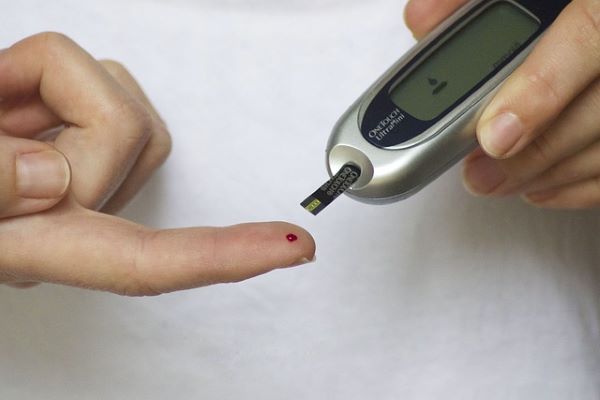Diabetes is one of the most significant health challenges in India, which has earned the title of the “diabetes capital of the world.” According to the International Diabetes Federation, India has more than 77 million people living with diabetes, and this number is expected to grow to 101 million by 2030. The increasing prevalence is linked to lifestyle changes, unhealthy diets, physical inactivity, and genetic predisposition. Despite growing awareness, many myths surrounding diabetes persist, leading to misconceptions about its management and prevention. This article will debunk 10 common myths about diabetes and provide research-based information to help individuals better understand the condition. (Source)
10 Myths About Diabetes
Myth 1: Eating too much sugar causes diabetes.
Fact: While excessive sugar intake can contribute to obesity, which is a risk factor for type 2 diabetes, sugar consumption alone does not directly cause diabetes. Type 1 diabetes is an autoimmune condition, and type 2 diabetes is influenced by a combination of genetics, lifestyle, and environmental factors. Managing overall diet and body weight is more crucial than simply avoiding sugar. (Source)
Myth 2: Only overweight or obese people get diabetes.
Fact: While being overweight increases the risk of developing type 2 diabetes, many people with the condition are of normal weight or even underweight. Genetics, age, and physical inactivity also play significant roles. It’s important to assess risk factors beyond body weight.
Myth 3: People with diabetes cannot eat carbs.
Fact: Carbohydrates are an essential part of a balanced diet, even for people with diabetes. The key is to monitor portion sizes and choose complex carbohydrates like whole grains, fruits, and vegetables, which have a lower glycemic index and release glucose more slowly into the bloodstream. (Source)
Also, read: Now Debunking 10 Common Postpartum Psychosis Myths
Myth 4: Diabetes is a minor health issue, not serious.
Fact: Diabetes is a serious condition that can lead to life-threatening complications if not managed properly. Uncontrolled diabetes increases the risk of heart disease, stroke, kidney failure, blindness, and amputations. Early diagnosis, lifestyle changes, and medication are essential for preventing these complications. (Source)
Myth 5: People with diabetes can’t eat sweets.
Fact: People with diabetes can enjoy sweets occasionally, but they must plan their meals and monitor their blood sugar levels. The key is moderation and incorporating sweets into a healthy diet. Using sugar substitutes and adjusting the portion size can help manage cravings without spiking blood sugar levels.
Myth 6: Insulin is a sign of failure in managing diabetes.
Fact: Insulin is a life-saving treatment for people with type 1 diabetes and is often required for people with type 2 diabetes when other medications fail to control blood sugar. Needing insulin is not a sign of failure; it is part of effective diabetes management when oral medications and lifestyle changes are insufficient. (Source)
Myth 7: People with diabetes shouldn’t exercise.
Fact: Regular physical activity is one of the best ways to manage diabetes. Exercise helps to lower blood sugar levels, improve insulin sensitivity, and promote overall health. People with diabetes should consult their healthcare provider to design an exercise plan that suits their needs and medical conditions.
Myth 8: Once you start diabetes medication, you can stop managing your diet and exercise.
Fact: Medications for diabetes help control blood sugar, but they are most effective when combined with a healthy lifestyle. Ignoring diet and exercise can lead to worsening diabetes and increased reliance on medications. Lifestyle management is a lifelong part of diabetes care.
Myth 9: Diabetes is contagious.
Fact: Diabetes is not an infectious disease and cannot be transmitted from one person to another. It is primarily caused by genetic and lifestyle factors, though environmental factors may also play a role in its development. (Source)
Myth 10: Only older adults develop diabetes.
Fact: While diabetes is more common in older adults, it is increasingly being diagnosed in younger people, including children and teenagers. The rise in obesity, sedentary lifestyles, and poor eating habits among younger populations has contributed to this trend. Early intervention is crucial to prevent long-term complications.
FAQs on Diabetes
Q1: Can diabetes be cured?
A1: Currently, there is no cure for diabetes, but it can be effectively managed with medication, diet, exercise, and blood sugar monitoring. In some cases, people with type 2 diabetes can achieve remission through significant lifestyle changes.
Q2: Is type 2 diabetes reversible?
A2: Type 2 diabetes can sometimes be put into remission with substantial weight loss, a healthy diet, and regular exercise. However, remission does not mean the disease is cured, and it requires ongoing management.
Q3: How often should I check my blood sugar levels?
A3: The frequency of blood sugar monitoring depends on your treatment plan, the type of diabetes you have, and your overall health. Your healthcare provider can recommend the best monitoring schedule for you.
Q4: Can people with diabetes eat fruit?
A4: Yes, people with diabetes can eat fruit, but they should be mindful of portion sizes and choose fruits with a low glycemic index, such as berries, apples, and pears. Whole fruits are better than fruit juices, which can spike blood sugar levels.
Q5: What are the early symptoms of diabetes?
A5: Early symptoms of diabetes include excessive thirst, frequent urination, unexplained weight loss, fatigue, blurred vision, and slow healing of wounds. If you experience any of these symptoms, it’s important to consult a healthcare professional for a diagnosis.
Conclusion
Diabetes is a widespread condition in India, affecting millions of people across all age groups. Understanding the truth behind common diabetes myths is crucial for managing the condition effectively and preventing complications. Regular monitoring, a balanced diet, physical activity, and medication can help individuals live a healthy life with diabetes.





